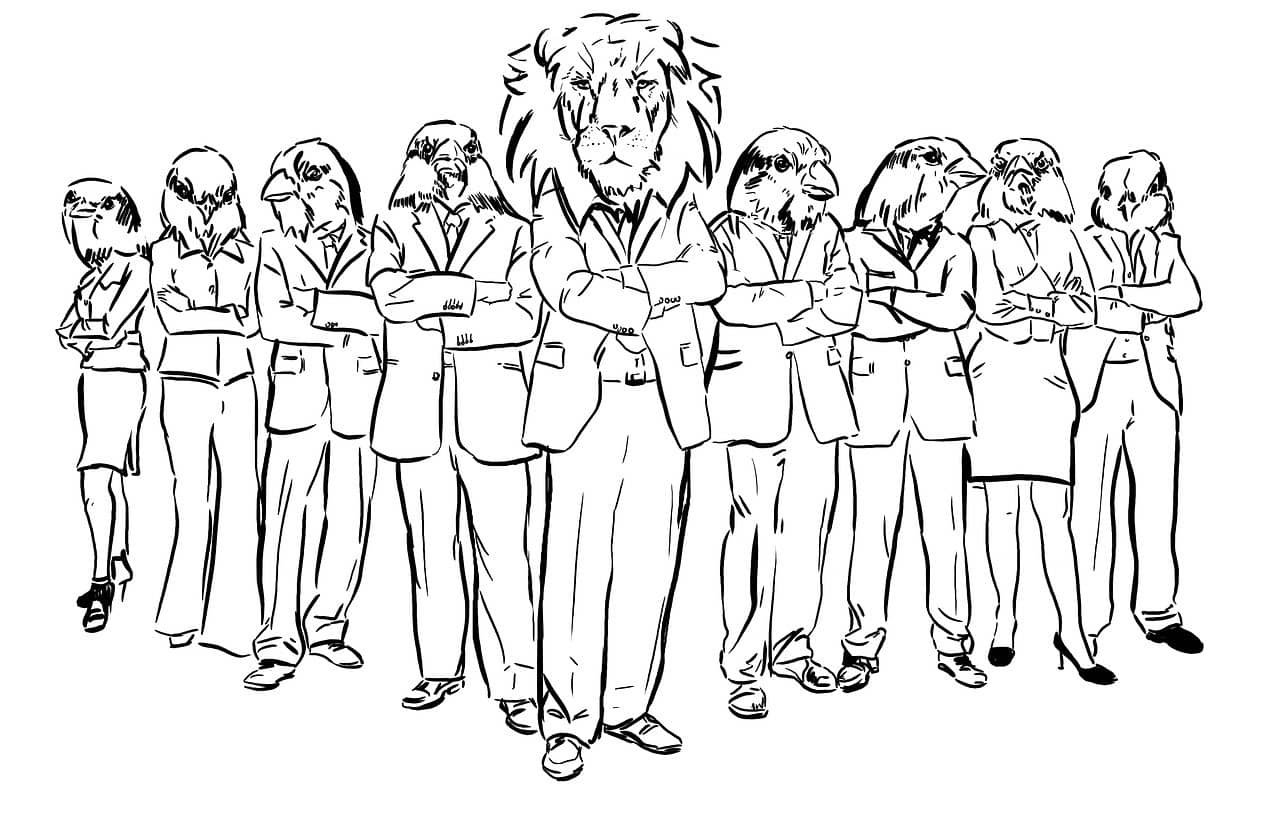Social Influence
Social influence is a pervasive force shaping human behavior and decisions. It encompasses the ways in which individuals are affected by the presence and actions of others. This phenomenon plays a pivotal role in various aspects of human interaction, from personal choices to societal trends.
Understanding social influence is crucial in fields such as psychology, sociology, marketing, and public policy. It involves the examination of how individuals are impacted by the beliefs, actions, and pressures of others, leading to changes in attitudes, behaviors, and decisions.
This brief overview will delve into the dynamics of social influence, encompassing its types, determinants, and implications in diverse spheres of human existence.
Key Takeaways
- Different types of social influence include conformity, compliance, obedience to authority, and informational social influence.
- Authority figures have a significant impact on group obedience, as demonstrated in the Milgram experiment.
- Cultural influences shape social influence dynamics, with cultural norms and diversity playing a role in conformity or resistance.
- Social media has a strong influence on behavior, with peer recommendations, social media influencers, and trends shaping decisions and preferences.
The Power of Social Influence
Frequently, the power of social influence shapes individuals’ behaviors and decisions in a variety of contexts, exerting a significant impact on society as a whole. Peer pressure, social identity, social norms, and group behavior are key aspects through which social influence operates.
Peer pressure, often seen during adolescence, can significantly impact an individual’s choices and actions. The desire to fit in with a particular group can lead individuals to conform to behaviors and norms endorsed by the group, even if these behaviors contradict their personal beliefs. This influence can extend beyond adolescence into adulthood, affecting decisions in various spheres of life, such as career choices, lifestyle preferences, and consumer behaviors.
Additionally, social identity plays a crucial role in shaping behavior under social influence. Individuals often derive their sense of self from the groups to which they belong. This can lead to behaviors that align with the norms of their identified groups, as conformity to group norms reinforces their social identity.
Moreover, social norms, the unwritten rules that govern behavior within a society or group, significantly influence individual actions. People tend to conform to these norms to avoid social rejection and gain acceptance within their social circles. This adherence to social norms can lead to collective behaviors within groups, influencing societal trends and cultural practices.
Types of Social Influence
Let’s explore the various types of social influence that play a significant role in shaping human behavior.
These include:
- Conformity versus compliance
- Obedience to authority
- Informational social influence
Understanding these different types of social influence can provide valuable insights into how individuals and groups are influenced by their social environment.
Conformity Vs. Compliance
The phenomenon of social influence involves individuals conforming to or complying with the behavior, beliefs, or norms of a group or authority. Conformity relates to the tendency of individuals to adjust their behaviors, attitudes, and beliefs to match those of a specific group, often leading to groupthink, where the desire for harmony or conformity in the group results in an irrational or dysfunctional decision-making outcome. Compliance, on the other hand, involves the act of yielding to a request or directive from an individual or group, often through persuasion techniques. It is crucial to understand the distinctions between conformity and compliance to comprehend the complex dynamics of social influence and its impact on individuals and society.
| Conformity | Compliance |
|---|---|
| Groupthink | Persuasion |
Obedience to Authority
Continuing from the previous subtopic, the obedience to authority represents a significant aspect of social influence, encompassing various types of influence exerted by authority figures on individuals and groups. This phenomenon is evident in the following ways:
-
Milgram experiment: This study demonstrated the extent to which individuals would obey authority figures, even when instructed to perform actions conflicting with their moral beliefs.
-
Ethical implications: The obedience to authority raises ethical concerns regarding the potential harm inflicted on individuals who comply with orders that contradict their values.
-
Authority figures: Those in positions of power can use their influence to promote positive change, but there is also a risk of the abuse of power, leading to detrimental outcomes.
-
Abuse of power: Instances of authority figures misusing their influence highlight the need for mechanisms to prevent the exploitation of individuals through obedience.
Informational Social Influence
An essential aspect of social influence is the phenomenon of informational social influence, which occurs when individuals conform to group norms and behavior in order to gain accurate information or guidance in ambiguous situations.
This type of influence is driven by the need to make correct decisions, particularly when individuals are uncertain about what to do. When faced with ambiguous situations, people often look to others for guidance, assuming that the group’s behavior reflects the correct way to respond.
In this process, social norms play a crucial role, as individuals rely on the behavior of others to determine the appropriate course of action. Informational influence can lead to individuals adopting the beliefs or actions of the group, especially when they perceive the group as having more knowledge or expertise in a particular situation.
Factors Affecting Social Influence
The impact of group dynamics is a key factor that affects social influence. Understanding how groups function and how individuals within a group interact can help us understand the ways in which social influence occurs. Group dynamics can include factors such as group norms, conformity, and group polarization. These dynamics can greatly influence an individual’s behavior and decision-making.
The influence of authority and obedience is another important factor in social influence. People often look to authority figures for guidance and direction, and this can greatly impact their behavior and decisions. Obedience to authority can lead individuals to comply with requests or commands, even if they may be against their own beliefs or values. Understanding the power of authority and the role it plays in social influence is crucial in understanding human behavior.
Cultural influences also play a significant role in social influence. Different cultures have different norms, values, and expectations, and these cultural factors can greatly impact how individuals behave and make decisions. Cultural influences can shape social norms, attitudes, and behaviors, and understanding these influences is important in understanding social influence.
Group Dynamics Impact
During collaborative decision-making, group dynamics have a significant impact on social influence. Group behavior and social psychology play crucial roles in shaping the influence within a group. Several factors affect social influence in group dynamics:
-
Group Cohesion: The level of unity and bonding within a group can significantly impact the extent of social influence among its members.
-
Leadership Style: The leadership approach adopted within a group can sway the social influence dynamics, whether it’s authoritative, democratic, or laissez-faire.
-
Conformity Pressures: The tendency of individuals to align their attitudes, beliefs, and behaviors with the group’s norms and values can exert a powerful influence.
-
Group Size: The size of a group can affect social influence, with larger groups potentially leading to diffusion of responsibility and decreased accountability.
Understanding these factors is crucial in comprehending the complexities of social influence within group dynamics.
Authority and Obedience
Exploring the dynamics of authority and obedience reveals significant factors influencing social influence within groups. Authority figures hold immense sway over group members, often leading to unquestioning obedience.
This phenomenon, known as the Milgram experiment, demonstrated how individuals complied with authority figures, even when it meant acting against their own ethical beliefs. Ethical dilemmas frequently arise in such scenarios, as individuals grapple with the conflict between following authority and adhering to moral principles.
The presence of authority figures can exert a powerful influence on group behavior, shaping decisions and actions. Understanding the impact of authority and obedience is crucial for comprehending social influence within groups and the ethical implications that come with it.
Cultural Influences on
Cultural influences significantly impact the factors affecting social influence within groups. Cultural adaptation plays a crucial role in shaping social influence dynamics, as individuals from different cultures bring diverse perspectives and behavioral norms to group interactions.
Social norms, deeply rooted in cultural contexts, can either facilitate or hinder the process of social influence within a community. Cultural diversity within a group can lead to varying degrees of conformity or resistance to social influence, depending on the prevailing cultural norms.
Factors such as communication styles, power dynamics, and decision-making processes are heavily influenced by cultural backgrounds, consequently affecting the way social influence operates within a given group.
Social Influence in Decision Making
Numerous studies have demonstrated the significant impact of social influence on decision making. When individuals make decisions within a group setting, they are subject to various forms of social influence, such as peer pressure, that can significantly affect their choices. Group decision making is particularly susceptible to social influence, as individuals may conform to the majority opinion or succumb to pressure from dominant personalities within the group.
Peer pressure, a prevalent form of social influence, can sway individuals to align their decisions with the perceived norms or expectations of their peers. This influence may lead individuals to make decisions that they would not have made independently, highlighting the powerful impact of social dynamics on decision making within a group context. Moreover, the fear of social rejection or the desire for social approval can heavily influence the decisions individuals make within a group, often leading to conformity and compromise.
In situations where group members are highly cohesive or where there is a clear authority figure, the influence on decision making can be even more pronounced. The dynamics of social influence can shape the outcome of group decisions, sometimes overshadowing individual preferences or rational considerations.
Understanding the role of social influence in decision making is crucial, as it sheds light on how individuals’ choices can be swayed by the pressures and dynamics present within group settings. This knowledge is valuable for various fields, including psychology, sociology, and organizational behavior, as it provides insights into the complexities of decision making in social contexts.
Influence of Social Media
The influence of social media on individuals’ decision-making has become increasingly significant in the modern digital age. Social media platforms have a profound impact on online behavior and play a crucial role in shaping individuals’ choices and preferences.
The influence of social media is particularly evident through the following:
-
Constant Exposure: Social media provides a continuous stream of information, opinions, and trends, shaping individuals’ perceptions and influencing their decision-making processes.
-
Peer Recommendations: The online behavior of individuals is influenced by peer recommendations and reviews shared on social media platforms, affecting their choices in various aspects such as purchasing products, selecting services, or even choosing travel destinations.
-
Influencer Impact: Social media influencers, with their large and dedicated followings, have a significant impact on their audience’s behaviors and decisions. Their endorsements and recommendations sway consumer choices and preferences, making them powerful agents of influence in the digital realm.
-
Trend Adoption: Social media platforms are instrumental in the rapid dissemination of trends and fads. Individuals often modify their online behavior and decision-making based on the trends they encounter on social media, from fashion and lifestyle choices to political opinions and social causes.
The influence of social media on individuals’ decision-making is a pervasive and dynamic force, shaping online behaviors and impacting a wide range of choices and preferences in the digital age.
Social Influence in Marketing
With the rise of digital platforms, social influence in marketing has become increasingly pivotal for businesses seeking to engage with consumers. Consumer behavior is significantly impacted by social influence, with peer pressure and celebrity endorsements playing a crucial role in purchasing decisions. The power of social influence in marketing is evident in the way consumers are swayed by the recommendations and behaviors of their peers and influential figures.
Celebrity endorsements have long been a popular marketing strategy, leveraging the influence and appeal of well-known personalities to promote products or services. Consumers often associate themselves with the lifestyles and values of these celebrities, making their endorsements powerful in shaping purchasing decisions. This form of social influence can create a sense of trust and aspiration among consumers, leading to increased interest and engagement with the endorsed products.
Moreover, peer pressure exerts a strong influence on consumer behavior, especially in the digital age where social media plays a central role in shaping opinions and trends. Consumers are influenced by the preferences and choices of their social circles, and this influence extends to their purchasing decisions. The ability of social influence to sway consumer behavior highlights its significance in marketing strategies, as businesses strive to harness the power of social connections and influential personalities to drive engagement and sales.
Social Influence and Conformity
An important aspect of social influence is the impact it has on conformity among individuals in various social settings. Social pressure plays a significant role in shaping individual behavior and attitudes, often leading to conformity within a group. This phenomenon can have both positive and negative implications, affecting how individuals express their individuality and engage in independent thinking.
-
Social Pressure: The influence of social pressure can lead individuals to conform to the norms and expectations of a group, even if it contradicts their personal beliefs or values. This can create a dynamic where individuals may prioritize group cohesion over expressing their individuality.
-
Individuality: Conformity can stifle individuality, as individuals may feel compelled to align their behaviors and opinions with those of the group, potentially suppressing their unique perspectives and ideas.
-
Groupthink: Groupthink occurs when the desire for consensus and harmony within a group results in irrational decision-making and conformity. This can hinder independent thinking and critical analysis, leading to flawed outcomes.
-
Independent Thinking: Encouraging independent thinking within a group can counteract the negative effects of conformity. Embracing diverse perspectives and fostering an environment that values individuality can lead to more innovative and well-considered decisions.
Understanding the interplay between social influence and conformity is crucial for navigating group dynamics and fostering environments that support both collective cohesion and individual expression. Balancing the need for social harmony with the preservation of independent thinking is essential for promoting healthy and productive social influence.
Resisting Social Influence
Resisting social influence can be challenging for individuals in various social contexts, requiring a thoughtful and intentional approach to maintaining autonomy and independent thinking.
Peer pressure, a pervasive force in social settings, often exerts a strong influence on individuals, compelling them to conform to the behaviors, beliefs, and attitudes of their peers. This can lead to individuals making decisions that they would not have made independently, solely to fit in or avoid social rejection. To resist such pressure, individuals must develop assertiveness, self-confidence, and the ability to critically evaluate the consequences of giving in to peer influence.
In today’s digital age, media influence has also become a significant factor in shaping people’s thoughts and behaviors. The pervasive nature of social media and advertising makes it challenging for individuals to resist the influence of carefully curated images, lifestyles, and opinions presented through these platforms. It is crucial for individuals to cultivate media literacy and critical thinking skills to resist the manipulative tactics employed by media sources.
Resisting social influence requires individuals to be aware of their values, beliefs, and personal boundaries. It involves the ability to confidently express dissenting opinions, make independent choices, and withstand the pressure to conform. By developing a strong sense of self and being mindful of the impact of peer pressure and media influence, individuals can effectively resist social influence and maintain their autonomy.
Harnessing Positive Social Influence
To effectively harness positive social influence, individuals must cultivate strong interpersonal relationships built on trust, respect, and mutual support. By nurturing these connections, individuals can tap into the power of positive social influence to promote personal growth and collective well-being. Here are some key strategies for leveraging positive social influence:
-
Social support: Building a network of friends, family, and colleagues who provide emotional, instrumental, and informational support can bolster individuals’ resilience and overall mental well-being. This support system can serve as a buffer against stress and adversity, enabling individuals to navigate challenges more effectively.
-
Community engagement: Active involvement in community activities, such as volunteering, participating in local events, or joining community groups, fosters a sense of belonging and connectedness. This engagement not only enriches individuals’ lives but also strengthens the social fabric of the community, creating a positive ripple effect.
-
Positive reinforcement: Surrounding oneself with individuals who offer encouragement, affirmation, and constructive feedback can fuel personal development and motivation. Positive reinforcement from peers can reinforce desirable behaviors and attitudes, shaping a more positive self-concept.
-
Peer pressure: When channeled positively, peer pressure can inspire individuals to adopt healthy habits, pursue personal goals, and contribute to the greater good. By aligning with peers who uphold positive values and behaviors, individuals can harness the motivating force of peer influence to propel themselves toward positive growth and achievement.
Conclusion
In conclusion, social influence plays a powerful role in decision making, marketing, and conformity. Research has shown that 70% of consumers are more likely to make a purchase based on a friend’s social media post.
Understanding the types and factors affecting social influence can help individuals and businesses harness positive social influence and resist negative influence.
It is important to be aware of the impact of social influence in order to make informed decisions and navigate the complexities of social interactions.








